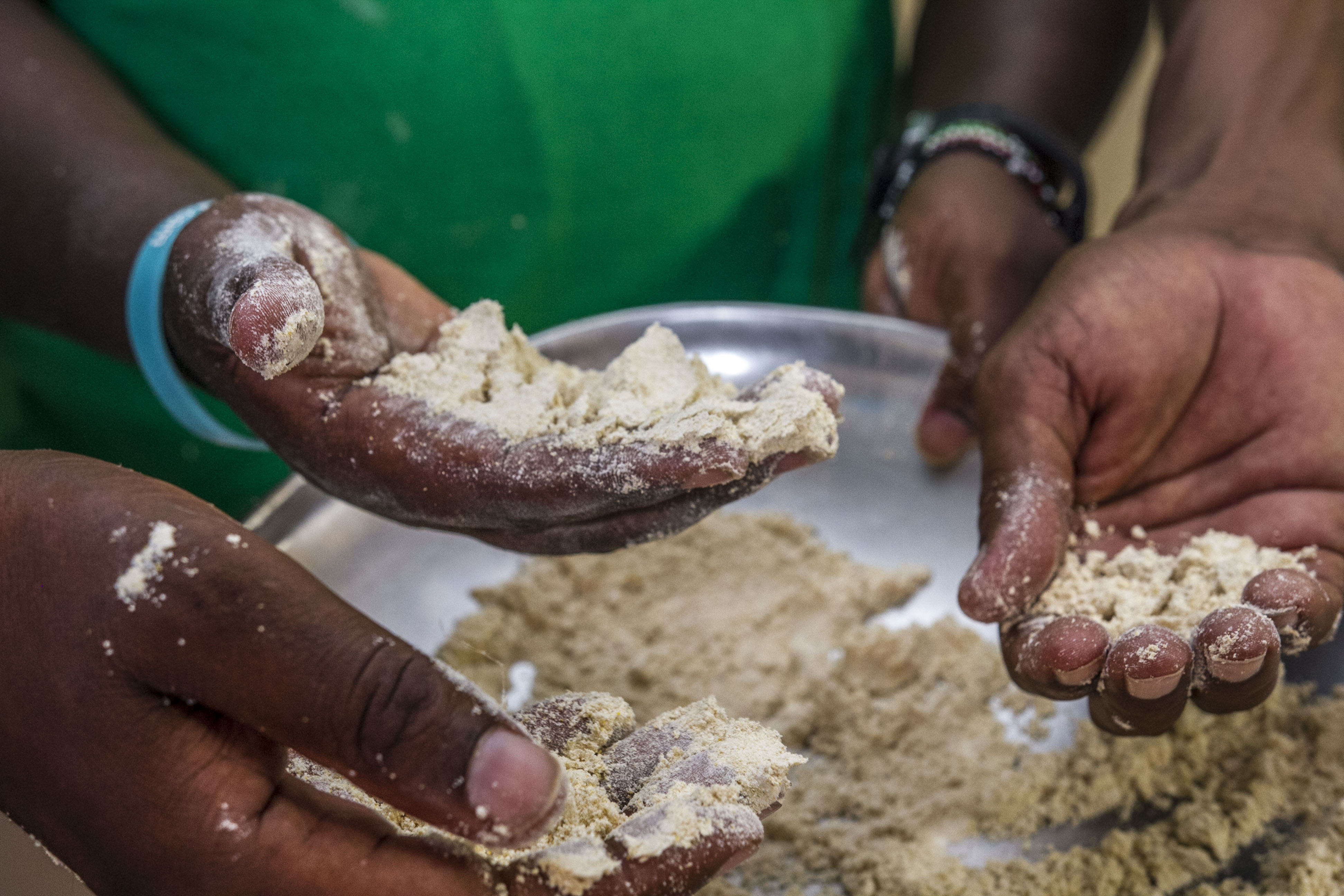Mathenge Maisha is a unique start-up, which turns a common drought-resilient weed into nutritious low-cost flour. Currently, nearly one million Kenyans are at risk from starvation as a result of prolonged drought. The Garissa-based project plans to employ local people, particularly from vulnerable groups, to collect the pods produced by the weed to be ground down into flour.
Inhabitants of Garissa County in northeast Kenya, the largest number of whom are ethnic Somalis, face drought and conflict perpetrated by Somali militant groups. Garissa is an area characterised by harsh weather, extreme temperatures and flash flooding. Food is scarce in areas with acute water shortage and unfavourable conditions for agriculture and rearing livestock. Employment is low and child malnutrition rates are among the highest in the country.
Recognising the high level of need in his and neighbouring communities, Samuel and his team set about looking at ways to increase employment and food production. They discovered a common plant prevalent across the county - Prosopis Juliflora, locally referred to as “Mathenge” and regarded as a nuisance weed. The team set about investigating possible nutritional properties of this weed and found that by grinding the pods using traditional milling methods they could create edible, cheap flour.
The team looked to refine the flour by adding small amounts of maize. They succeeded in getting the food product, ‘Mathenge Maisha’, certified by the Kenya Bureau of Standards. They have also worked closely with the Kenya Forestry Services to carry out research and environment impact assessments, and Garissa County Government to engage wider stakeholders and seek investment. Creating a cheap new food product is only half the story, according to founders Samuel Kingori and Abdi Arare, their business will also generate local employment. The team will hire people, including women, from surrounding communities to collect the Mathenge pods and they will train people in flour milling techniques to produce the product locally.
The team have registered their company ‘Mathenge Maisha’ and have established a small production facility. They have created branded packaging, but face the challenge of running a marketing campaign to change negative attitudes about a product derived from a weed. They are exploring the option of selling wholesale and supplying to higher-end health food markets whilst retaining local production facilities and providing the flour at low cost for people in Garissa County.
The company’s ethos is to have high social and economic impact for local communities.
With a project sales forecast in the first year of KES 10,800,000, the business will sell to pastoralist communities at a much lower cost than other flour products on the market, and seek to sell to humanitarian organisations and government entities providing food relief in times of scarcity. The team is looking for an investment of GBP 40,000 over 12 months to reach markets throughout Garissa County. The investment will cover expansion of production and operation facilities; staff costs; transport and distribution; marketing and advertising; and, research and development to penetrate other markets, such as the high-end health food market.
More Detail about the innovation
Problem: Food shortages and low employment are persistent challenges for people living in Garissa County.
Solution: A low-cost, affordable flour produced from a drought resistant pervasive weed readily available across the county. The product has been certified by the Kenya Bureau of Standards (KEBS).
Status: Mathenge Maisha Ltd is registered as a limited company with a small production facility in Garissa County. The business is supported by Maarifa Kona, a consortium between Adeso, iHub and Mastercard.
Business model: The group aims to target customers in Garissa Town and further, selling also wholesale into markets across the country.
Sales Forecast: Year 1 KES 10,800,000
Proposition: Mathenge Maisha Ltd is seeking an investment of GBP 40,000 over 12 months to scale their idea and reach different markets within Garissa County and further afield.
Endorsements: Certification from Kenya Bureau of Standards (KEBS)
Founders: Abdi Dohs Arare and Samuel Kingori
Contact: Email: abdidohs@gmail.com Tel: +254 703391314/+254 727016512
Read more about other innovations from the DEPP Innovation Labs.

